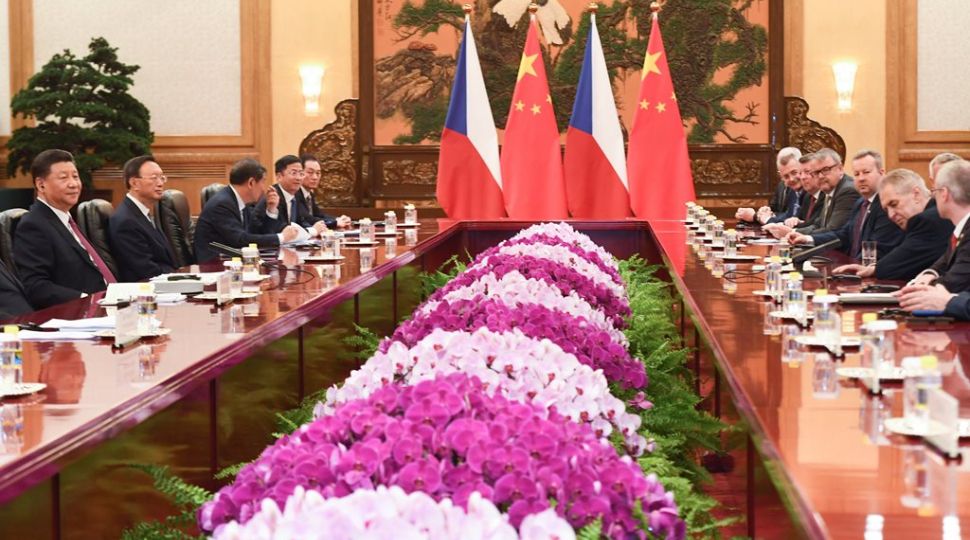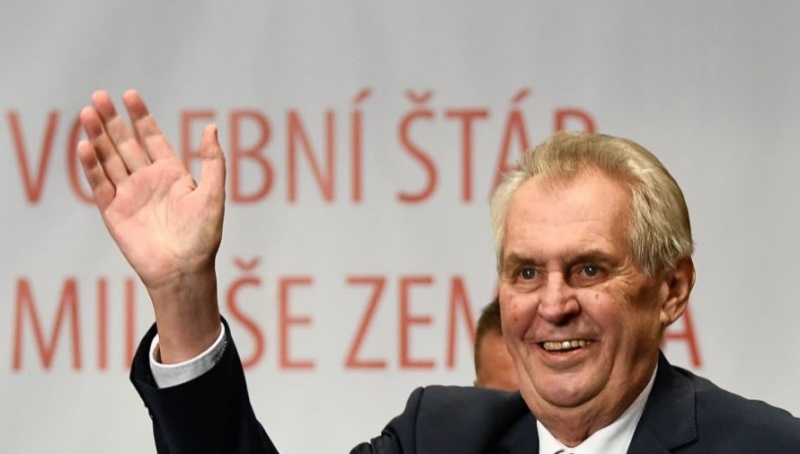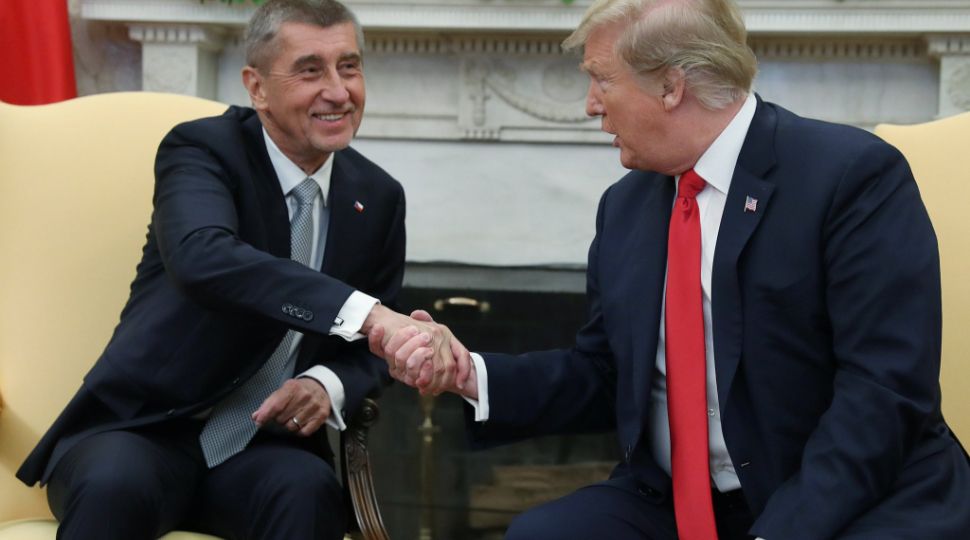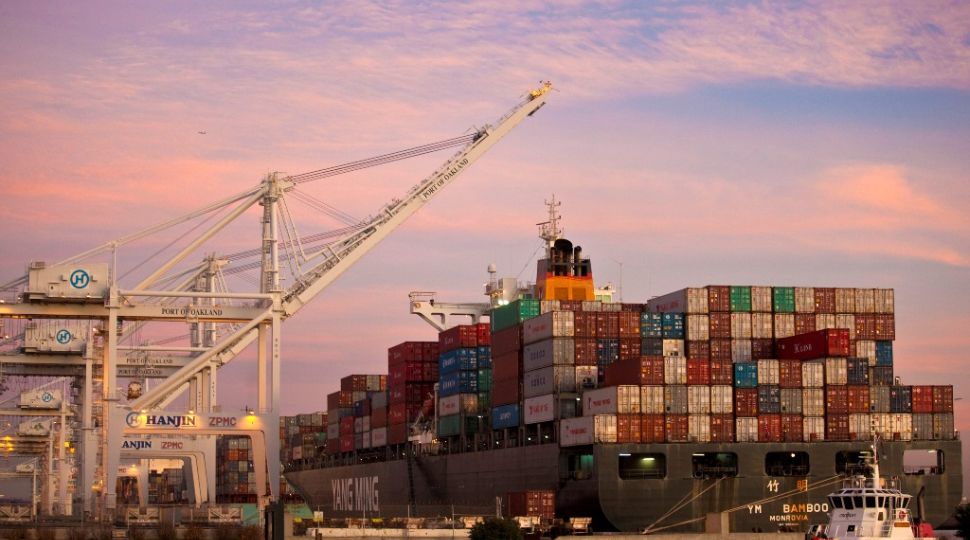Czech Republic on the Challenges in Cooperation with China

Czech Policy on China
The different approaches of the government and President Zeman make the Czech Republic’s policy on China inconsistent. Zeman is considered an advocate of building closer ties with China, which he proved in 2016 by entering, with the support of then Prime Minister Bohuslav Sobotka, into a strategic partnership with the country. The president’s personal relations with Chinese leader Xi Jinping and political gestures are aimed at strengthening the relationship with China. He was also the only EU head of state to attend the celebration of the 70th anniversary of the end of World War II in Beijing. After Slovakia and Poland, the president has visited China the most. In April, he paid his fifth visit to China, this time to attend the Second Belt and Road Forum. For Zeman, the demand to strengthen cooperation with China, as well as with Russia, serves to build an alternative foreign policy to deepening European integration and closer relations with the U.S.
Zeman’s pro-China politics stand in growing contrast to information from Czech intelligence services, on the one hand, and the stance of the government composed of Action of Dissatisfied Citizens (ANO) and the Czech Social Democratic Party (ČSSD) on the other. In December 2018, the Security Information Service (BIS), in a report on counterintelligence activities, drew attention to an increase in Chinese intelligence services’ actions in the Czech Re In addition, the National Cyber and Information Security Agency (NÚKIB) issued a warning against the use of Huawei and ZTE software and hardware, which exacerbated the approach of state institutions to Chinese technology. This resulted in diplomatic tension between the Czech Republic and China. After talks between Babiš and the Chinese ambassador in Prague about Huawei, the Chinese embassy reported that the Czech prime minister noted the Czech government was attempted to correct the “mistakes”. Babiš accused the ambassador of lying about the meeting.
Foreign Minister Tomáš Petříček, more boldly than his predecessor Lubomír Zaorálek (also from ČSSD), has raised the issue of respect of human rights in China, including in bilateral talks, for instance, during a ministerial visit to Shanghai in November last year, as well as at the UN. The Czech Republic appeals to China to ratify the International Covenant on Civil and Political Rights from 1966 and to stop the repression of ethnic and religious minorities in the province of Xinjiang. The mayor of Prague, Zdeněk Hřib (from the opposition Czech Pirate Party), also has contributed to tensions in bilateral relations. He has met with representatives of the Tibetan government in exile and visited Taiwan. The city of Prague’s involvement in diplomacy was criticized in July by the Chinese Ministry of Foreign Affairs. In addition, the Chinese side put off an invitation from the Czech parliament and Foreign Minister Petříček announced he had called on the Chinese ambassador. Probably due to these tensions, Prague was the only Visegrad capital not visited by Chinese Foreign Minister Wang Yi during his European trip in July.
Economic Relations
In 2018, China overtook Poland to become the Czech Republic’s second-largest trade partner (€24.3 billion). After Germany, China is the largest supplier of goods to the Czech market. In 2018, imports from China amounted to €22.1 billion and were 10 times higher than Czech exports to China. The negative trade balance concerns the Czech government, which expects its Chinese partner to deregulate and liberalise its market. The expectations stem from, among others, the ANO party’s programme, which in the context of relations with China mentions “respecting the rules of international trade” and “protecting Czech industry from unfair competition”.
Despite the Czech prime minister’s personal experience and views on Chinese cooperation—his past unsuccessful attempts to personally invest in China and his assessment of the 2016 strategic partnership and the Belt and Road Initiative (BRI) as ineffective—Babiš aims to increase Czech exports and investment in China. This is to be done by soliciting transparency in the Chinese economy, which he appealed to in April during the 8th Summit of Central and Eastern European Countries and China (now known as the “17+1” format) in Dubrovnik, Croatia. Economic connections are strengthened by Czech economic diplomacy in China, including Czech Trade offices in four Chinese cities and a Czech Invest office in Shanghai. According to Babiš, more efficient export promotion could be managed by bringing these units (currently under various ministries) together. In 2018, about 620,000 Chinese visited the Czech Republic, making them the fourth-largest group of foreign tourists. The tourism dynamics, including an increase of 26% in 2018 compared to the previous year, was possible thanks to four direct flights between Prague and four Chinese metropolises (the most among the V4 capitals) and three Czech Tourism tourist information centres in China.
The Increasing Role of Cybersecurity
Relations with China are increasingly perceived through concerns about the protection of critical infrastructure. As a consequence of the BIS and NÚKIB warnings, Huawei will have limited opportunity for participation in planned investments in the 5G network in the Czech Re Chinese representatives were not invited to an international expert conference on 5G security hosted by the Czech PM in May, despite the presence of participants from 32 other countries. Concerns about Huawei’s activities were heightened in July as a Czech Radio investigation indicated that sensitive data on officials and entrepreneurs had been collected and transferred to China by the company’s Czech branch.
Transatlantic relations have a significant influence on the Czech Republic’s policy on China. The Czech PM’s visit in March to the White House—the first since 2011—was possible, among others, thanks to the Czech stance towards Huawei. The U.S. aims to stop Chinese technological expansion in Central Europe.
Conclusions
While this year marks the 70th anniversary of the establishment of diplomatic relations between the People’s Republic of China and Czechoslovakia, Czech-Chinese relations are deteriorating. This despite the investment of significant political capital by President Zeman and previous cabinets. Even though the Czech government is concerned about the state of investment from China, in the long run, it wants this input to grow. The security of investments should increase with the implementation by the Ministry of Industry and Trade (under ANO control) of a Regulation by the European Parliament and Council of 19 March establishing a framework for the control of foreign direct investment in the EU by supporting cooperation between the Member States and the EC. At present, 14 EU members, including the Czech Republic, do not have national mechanisms for investment controls.
In the last months, Huawei’s activities in the Czech Republic, as well as plans to supply portions of its 5G network, are playing an increasingly important role in the country’s bilateral relations with China. Meanwhile, the Czech intelligence services and the country’s relations with the U.S. have had a significant impact on the Czech approach to Huawei. However, in the coming months, EU policy on 5G network development will be crucial in this context. The Czech Republic likely will consider threats associated with the Chinese company in a risk assessment of the 5G network. In March, the EC required the Member States to prepare such assessments. Based on them, the EU has until 1 October to prepare a common risk assessment and then agree on preventive tools. On the one hand, the Czech experience enriches the European understanding of the mechanisms of the Chinese presence in cyberspace and, on the other, the European regulations can protect the interests of the Czech Republic and the other Member States.





